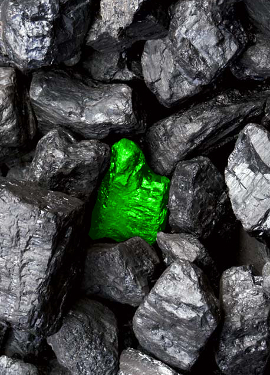Sydney Uni expels high-emitting stocks
 The University of Sydney has become the latest big Australian institution to get cold feet on coal.
The University of Sydney has become the latest big Australian institution to get cold feet on coal.
The University is set to re-adjust its stock portfolio to get rid of some fossil fuel investments.
The school says it is not completely out of the game, but wants to make sure the carbon impact of companies it supports is as small as possible.
Sydney Uni has instructed its listed equity fund managers to build a portfolio of investments that enables the University to reduce its carbon footprint by 20 per cent in the next three years.
It says the decision was made after a review of fossil fuel investments, taking into account leading practice on sensitive investments, and current global views.
The review considered a number of options, including whether to divest entirely from the fossil fuels industry.
But the University found that divesting entirely from all companies with an interest in fossil fuels could result in divesting from companies that are also committed to building renewable energy sources.
In addition, there are many companies that do not produce fossil fuels who are nonetheless heavy emitters.
Based on the review's findings, the University of Sydney says a whole of portfolio approach to reducing its carbon footprint is an effective and meaningful way to address climate change.
“The new strategy balances the University's obligation to manage funds wisely on behalf of our students, staff, donors and alumni with its desire to address climate change and protect Australia's heritage,” said the University's Vice-Principal (Operations) Sara Watts said.
“This strategy will give the University a legitimate voice in the conversation on how organisations can best address climate change risks.”
In addition, the University:
• has become a signatory to the CDP (formerly known as the Carbon Disclosure Project), the world's largest source of company-reported emissions data;
• has joined the UN-led Portfolio Decarbonisation Coalition, a coalition of investors who collectively are committed to decarbonising $US100 billion of its investment assets;
• will incorporate carbon footprint reporting capability into the selection and review of listed equity investment managers; and
• will further expand its Environmental, Social and Governance (ESG) framework to put in place ethical investment standards that support the economic and social rights of Aboriginal and Torres Strait Islander people.








 Print
Print